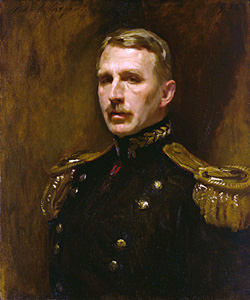1922-1924: One Small Step for Man
Above is a picture of President Debs shaking hands with territorial governor of Australia following Australia's acceptance as 6 separate United States. Ireland and parts of Canada soon followed.
Debs had recently established several bureaus dedicated to the selling of American ecological technology and infrastructure in return for political favors and funds. The US Treasury, depleted from the World War, now needed boosting for the upgrading of returning, outdated infantry ammunition and outdated ships and fighters.
With a lowering national treasury and a dwindling economy, Debs signed the Budget and Accounting Act of 1922 into legislation, which received a standing ovation from the left, and acceptance from the right. Creating the Bureau of the Budget, Debs expanded executive power by creating a budget director who reported directly to the president instead of the Secretary of the Treasury. Debs increased socialist and environmental programs by 25% in 1922, and another 25% in 1923. By 1924, federal spending had doubled. Ludwig von Mises, an Austrian economist, helped engineer the programs. He states that the socialist programs reduced the post-war economic stagnation.
Following this, the Revenue Act of 1922 greatly increased taxes of the wealthy. Protests from Harding Democrats greatly reduced the increase that the Socialists had desired.
Debs in 1922 also went on his second tour of the world promoting world peace, stopping by several nations which he could not convince in 1921.
Being strongly opposed to entangling alliances, he also actively refused to renew defensive-pact treaties with Arabia and Korea.
Outdated coal plants were then phased out with nuclear power plant projects. This was highly opposed from those who feared for their possible failure and radioactivity, but Debs stated that the personnel handling these facilities will not only bring clean energy, but boost the science sector.
Debs then signed the Packers and Stockyards Act, which prohibited packers from engaging in deceptive and unfair practices.
Transports arrived at Suez early in 1922. Leonard Wood, Chief of Staff of the Armed Forces and previous presidential candidate, after recieving a comment from the navy that they are dressed for northern European weather while stationed in Suez, commented “We are aware and our staff is aware more than we ever have been.”
By July, universities across the nation had reported large advancements in robotics. The military quickly took these advancements to military research facilities, and began creating tanks that were suitable for defense, and phased out several navy positions that could be replaced with robotics.
In January 1924, the world watched in wonder as the first man landed on the moon. The fifth manned Apollo launch, the astronaut declared "One small step for man, one giant leap for mankind".
The fervor produced from America's landing on the moon moved several cities to begin producing even more aspiring goals. Research facilities in Arizona began work on a large docking bay; one that dwarfed any other attempt.
Espionage was focused on the Russians following the collapse of their communism, with hopes that their military movement could be tracked to predict their impact on Germany -- Germany, having recaptured Berlin with help from France, seemed to be bouncing back surprisingly quick and alarming the Austrian government.
Near the end of his term, Debs appeared at the United Nations fighting for world welfare. His radical notion proposed a world organization deterring nations from capitalism and promoting socialist, welfare programs. The notion not only was lost by votes, but Russia, Germany, and Brazil outright refused and threatened to declare war if such a program was forced upon them.
Troops arriving home were desperately overcome with tears of joy as the docks of Washington were adorned with American flags and crowds of cheering families. Debs was also present, and gave a speech on national unity and universal brotherhood; condemning radicalism and greed, and promoting social effort and kindness. Most soldiers immediately went home to watch the moon landing, as they had only heard it on the radio while on the ships and did not have the opportunity to see it.
Following their return, Debs signed into legislation the Sweet Bill, which nationalized medical bills for returning veterans; although, medicals bills were some of the lowest in the world in America to begin with, after several terms of socialism.
By the end of Debs' fourth term, Mongolia had declared independence from Russia. Renewed interest in diplomacy led to oil engineers being sent to the Mongolian deserts, in exchange for their peace with Palestine.
Debs then declared that he would not run again. The 68 year old, although energetic, enthusiastic, and swift as ever, felt that the stress of office was beginning to erode his health. During this time, the press had been, well, pressing him to address the extremist political movements and the KKK. Debs stated that he had given local police the training, ethical instruction, and authority to enforce fair and equal law, but he would not use his office to make an attack on an ideology.
Debs retiring and leaving office pointed out that 3 out of the 5 top cultural cities in the world were now American. He did, however, point out the slowly (very slowly) declining stability of the nation, which political division and economic stagnation has been attributing to. He championed his free market safeguards and environmental programs as preventing the nation from spiraling into a recession.

 and then that isn't a word so I really meant sought
and then that isn't a word so I really meant sought


















